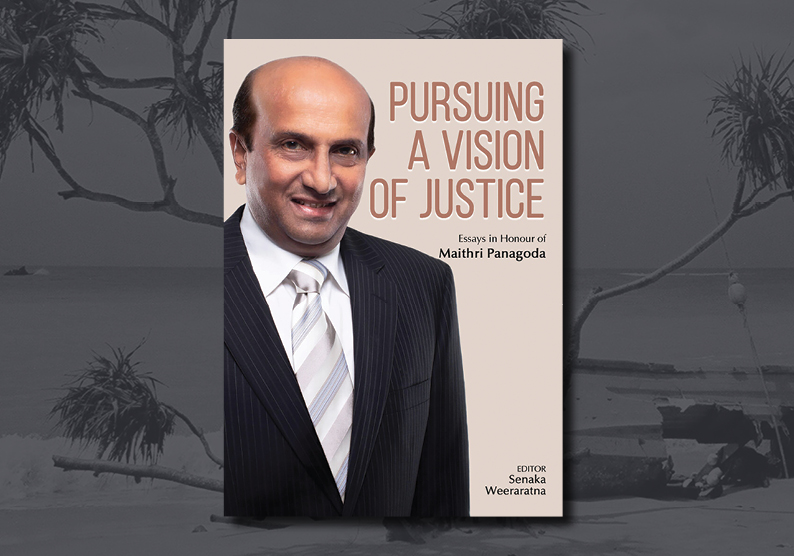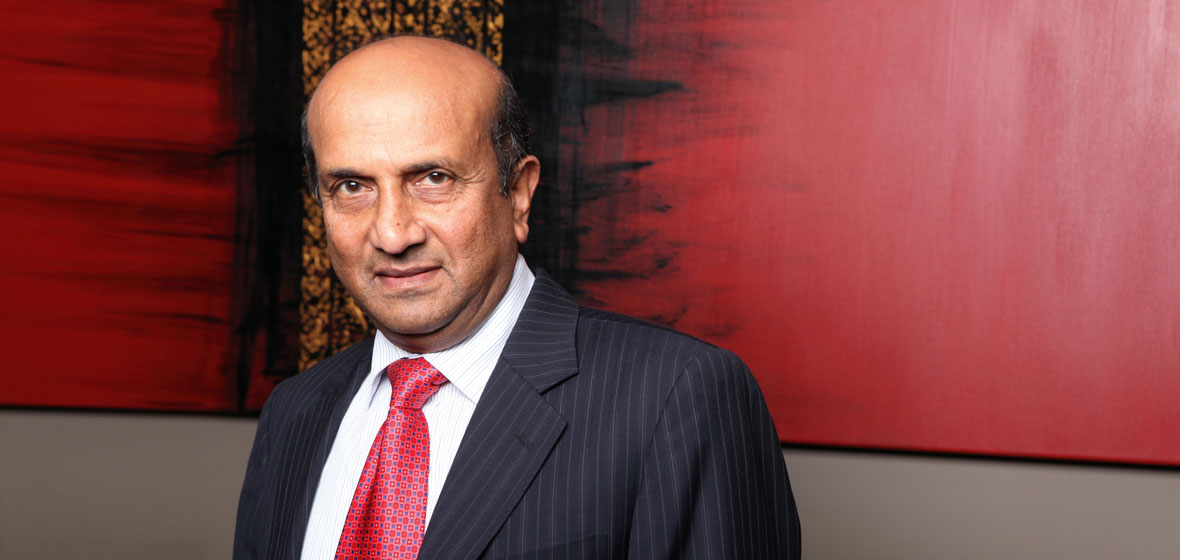Maithri Panagoda is a partner at Carroll & O’Dea Lawyers and one of Australia’s leading compensation lawyers. The newly released book ‘Pursuing a Vision of Justice’ covers his career and groundbreaking work with Indigenous Australians.
How did the book ‘Pursuing a Vision of Justice’ come about?
In early 2020, an editor in Sri Lanka approached me. He had read my work in Australia and was interested in writing about it. I actually tried to discourage him, but he thought there was something valuable for the next generation, particularly my work with Indigenous people. In the end I agreed, and he spent over two years researching my life and work. It’s a collection of essays, written by people I have come across over the years. I get emotional reading some parts of it. It goes back to my childhood and there are two chapters written by my wife and daughter. I didn’t see my daughter’s chapter before it went to print. She sent it directly to the editor, so it was emotional. It made me feel like I have done something positive with my life. This book will be useful for the next generation of lawyers – you can achieve anything if you work hard.
What has been your biggest career highlight?
I’d say my work with the Stolen Generations. That was a huge success because it’s an aspect that no other law firm was prepared to take on. All the legal principles were against us. But I was passionate about trying to do something. Together with the Stolen Generations Council in NSW, we made representations to the State Government at the time. Eventually the Government agreed that we should come up with a proposal. The proposal was good because it was non adversarial and didn’t require detailed medical or legal reports. In the end, my colleague Hayley Aldrich and I completed 256 claims. We travelled within NSW and interstate. Being able to do that was the highlight of my career.
What was particularly challenging about that work?
There were a lot of difficulties. Initially, we were concerned that we were spending all this time and money for an unsuccessful result. We were getting into unchartered territory. Our firm is a business and there’s a limit to how much work you can do pro bono. I had to take a risk and explain to my partners that it was worthwhile. Fortunately, they gave me the green light. We also had to convince the Aboriginal community that we would try and do something worthwhile.

How do you go about avoiding vicarious trauma with the clients?
It’s a balancing act. For my work with the Stolen Generation, people broke down during settlement negotiations. We had to handle it very carefully. You need to have empathy; you can’t just go in and discuss technical and legal matters. You need to understand emotions. Sometimes mothers didn’t know where their children were, or children didn’t know who their natural parents were. At the settlement conference there was a round table with four representatives from the Government and five people from our legal side. There were tears from everyone at the table because we were hearing emotional human stories.
How do you navigate work life balance?
I’m very much a family man. I have three grown children and five grandchildren. One of my tricks is that when I leave the office, I don’t take my work with me. I used to say that I don’t take my jacket home. My jacket symbolises all my work worries and concerns, so I leave it in the office. That’s something you need to develop otherwise it’s very difficult to do this job. At the moment my main work is historical child abuse. These are terrible stories; each one is worse than the other. I apply the same principle in my personal life, so I don’t get affected.
What do you like to do in your spare time?
Ever since I was a child, I loved writing poetry. I have published a couple of collections. When I have time, I also compose songs. I’ve put out four CDs of songs, the lyrics written by me, sung by different musicians. Writing poetry and songs takes my mind off legal work and I really enjoy it. I’m still very much in love with Sri Lanka so I go back regularly and keep in touch with people there.
Law Society Journal readers can enjoy an exclusive extract of Pursuing a Vision of Justice in the latest edition for November. If you are interested in purchasing a copy of Pursuing a Vision of Justice, please click here.




